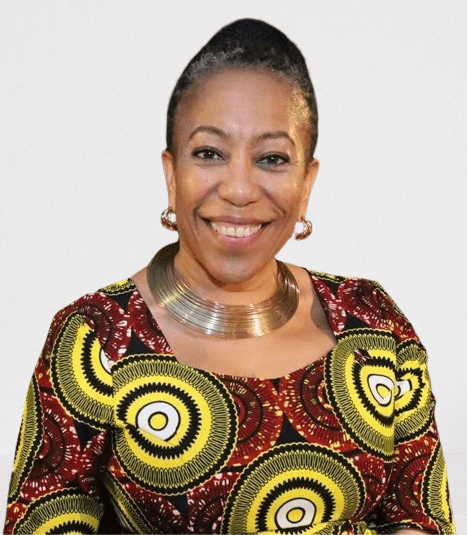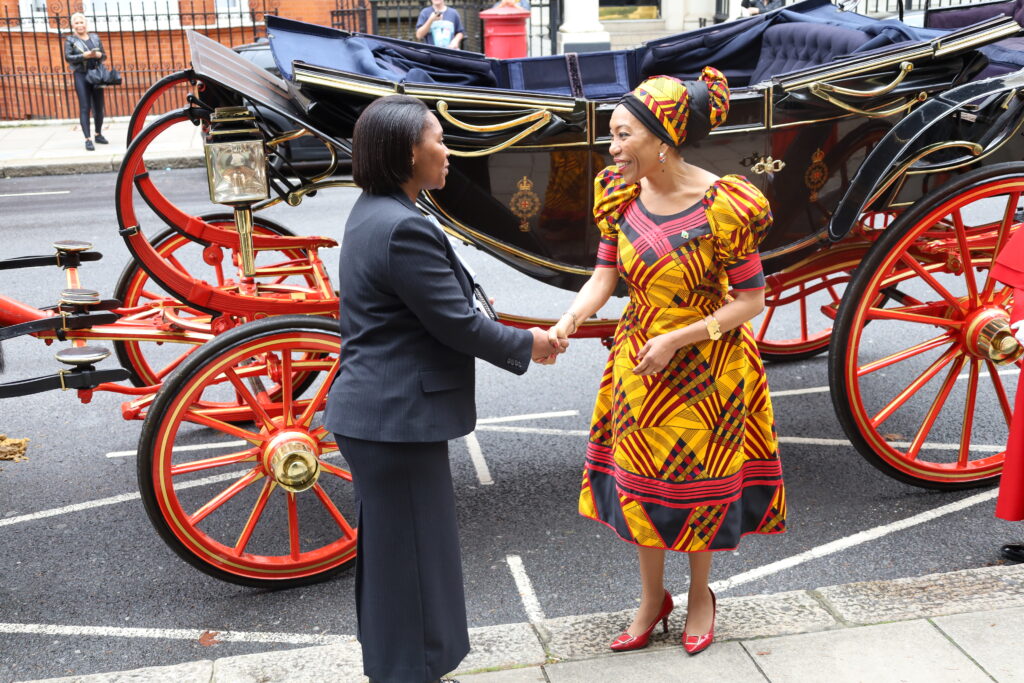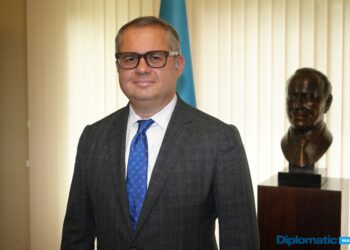Ms. Macenje Florence Mazoka, a seasoned media professional, recently embarked on a new chapter in her career as the High Commissioner of Zambia to the United Kingdom. While her diplomatic experience may be nascent, her prior media career equipped her with relevant negotiation and communication skills that seamlessly translate into the world of diplomacy. In this interview with Diplomatic Watch Magazine, Her Excellency, Ms. Mazoka sheds light on her fascinating journey, her priorities as High Commissioner, and her vision for strengthening relations between Zambia and the UK. Excerpts:
Ms. Mazoka, your diplomatic journey and experiences are undoubtedly rich and diverse. Could you share some of the most memorable moments or milestones that have shaped your career in diplomacy?
Well, first of all, I would like to say I’m new to the diplomatic core. This position is my first foray into the foreign service. Prior to the diplomatic corps, I worked in media; for the last 30 years. That’s really where the core of my career has been. Mainly in public broadcasting, both in the United States (in New York and Washington) and on the Continent. I started off, of course, in Zambia in the 80’s at ZNBC, kind of getting my “bug” if you will. Then, most recently, before I was appointed to this diplomatic post, I worked at the South African Broadcasting Corporation (SABC) for the last 16 and a half years. So, diplomacy is very new to me, or diplomacy in its formal sense, I should say, is new. But fortunately, there are many transferrable skills from my media career that are helpful in diplomatic work.

As the High Commissioner to the UK, what specific actions have you taken to strengthen bilateral relations between Zambia and the UK, and how do you perceive these efforts impacting both nations?
Zambia’s primary Foreign Service goal is led by economic diplomacy. So that’s the clarion call of all of the missions across the world. It’s all about driving investment into Zambia and partnerships, whether they be bilateral or multilateral. That’s the key focus area for us.
In terms of my engagements here, we have maintained good relations with the current government with our existing bilaterals and are working to strengthen them . So, from a government-to-government standpoint, we’ve had engagements around the FCDO International Development framework, the most recent White Paper. I was very fortunate to have been asked to be part of the launch event, representing developing nations in reflecting upon the White Paper, its validity and soundness, and just providing contextualized feedback for them to either tweak or execute as is.

In addition, of course, the softer part of our engagements focus on culture, tourism, and ways in which we can excite Britons and UK residents to visit Zambia and invest in Zambia as a country that’s open for business. But as mentioned, our primary focus is economic diplomacy and investment, we aim to explore opportunities for more trade between the two countries.
Right now, there is an imbalance of trade, of course. We import more products from the UK than the UK imports Zambian products. So, it’s up to us to look at the ways in which we can improve the trade relationships, understanding more of the conditions that are required for imports to come into the UK, ensuring our people in Zambia are aware of the compliance requirements.
Given the recent increase in online searches related to your family’s political history and your diplomatic role, what specific measures is your office undertaking to enhance transparency and accountability in the processes and decisions surrounding UK investment and trade in Zambia? Additionally, how are you working to improve trade relations, attract more UK investment, and address the current trade imbalance, all while ensuring continued progress on economic diplomacy goals aligned with the UK?
Okay, that’s a lot of questions. Well, I have no insider information as to why people might be searching for me, but it could be because of the position I’m in. I’m not sure, but maybe a bit of background in terms of my father and his role in shaping Zambian politics would be helpful.
He was a businessman doing very well for himself. He started off with a very good career in government. He went to college in the United States in the early 60s. So soon after Zambia’s independence, he got a scholarship and went to New York and attended Union College. It was an all-male engineering school at the time, so very technically oriented. Upon graduation, he moved back to Zambia with his young family and worked for the railways. Late president Dr. Kaunda soon promoted him to run Zambia railways where he worked for some time. Thereafter he moved into the private sector, working for Diacarb and eventually becoming the head of Anglo American Corporation for Central Africa, the mining conglomerate when they were in Zambia.
During that time, Zambia went through a transition from a single-party state to a multi-party state. The politics in the country were changing, things were opening up for Zambia, and there were more opportunities for a variety of voices to come in. A political party was formed that he had joined, the MMD. He wanted to serve as a local councilor in his community to get into politics because he felt quite strongly about the state of the nation, and he once said, ” how can I sit here in my mansion doused in perfume when my fellow citizen is next to me living in squalor?” That just didn’t work out for him, so that’s when he decided he wanted to get more involved in the public sector space to shape a new Zambia, a more prosperous Zambia for all.

Credit: ZambiaHC,London

He was discouraged to stand for a local councilor’s seat in Bauleni ward (which is a small area) next to our home. They said, “No, Mr. Mazoka, how will that help you? You’re a big man in the country; you can’t be a local councilor. You know, you start from the bottom and you work your way up.” So, he was blocked, and that’s when he decided the time was right and he became the founding president of the United Party for National Development (UPND) at the time in 1998.
He ran for president in 2001, and he won although the results came back saying otherwise. But UPND actually did win that election. The Carter Center was there, international monitors were there, the EU was there, and they all had reported otherwise, but things happened, it was a robbery. He continued on, and had many attempts on his life, including a poisoning that put him in a coma, which he came out of and ran for president again, but unfortunately lost his life as a result of the poisoning and complications around that in 2006, a few months before the elections. That’s when the current president, Hakainde Hichilema took over the leadership of the party, and you know, he ran for president four times and finally, in August 2021, he was elected by a landslide and the party came into power. So, that’s some of the history of the family and the party. So, UPND was in opposition for 23 years, you know, as a political party. My stepmother, is a Member of Parliament and has been since the death of my father, and still is, so that’s the history with the party. So, the Mazokas are very much involved with, and are very much connected to the UPND.
In terms of the area of transparency, you mentioned transparency and disclosure in diplomatic circles. I think all of what we do and what we are aiming to do is very much in the public domain. Obviously, we want our people and the general public to know our efforts and our goals. We’re not shy in terms of being very clear that economic diplomacy is our key focus area. It’s all about growing the economy. It is the position of the current administration, it is a position of government because the economy is not as sound as it should be. It is getting better, there are improvements but there have been setbacks due to the recent cholera outbreak and the drought that’s happening now. All of those things are actually beyond our control, particularly when you’re talking about natural disasters often due to climate change and so forth. But we are working on mitigating the risks around that as much as possible, and there are plans in place to improve.
So, in all that we do, we are definitely open to sharing, talking about it, because the more visibility we have around the issues and the solutions that we either come up with ourselves or collectively with partners, we’re open to putting them out in the public space. Our president is our CMO, he’s our Chief Marketing Officer. As soon as he came into power, he was on the ground across the world talking about Zambia, talking about what we want to do, what we need to do. The main priority, of course, as I mentioned, is to stabilize the economy. But the challenge, the major challenge we had, was the debt. We had a huge debt burden. The New government came into power, opened up the curtains, and found out that the coffers were bare. So then, how does one look to turn the economy around? The debt negotiations have been ongoing and have been successful. We still have a little bit further to go with some of the private lenders, but in terms of the common framework, we’ve gotten over those hurdles. So, we do have a little headroom to, you know, extend, to not have to pay so much on interest and extend the terms of our repayment period which frees up some capital to invest into our social services on the ground.

As a prominent figure in diplomatic circles, what advice would you offer to aspiring diplomats or individuals interested in pursuing a career in international relations, especially within the African context?
That’s a big question, but here are some key recommendations:
Know your story: Get a clear understanding of your country’s goals and aspirations so you can articulate them effectively. Be aware of the issues and your mandate.
Don’t speak beyond your mandate: Remember, you represent your government. People will see your government when they see you, so be mindful of what you project.
Be articulate: Communicate clearly and concisely in your conversations, and be intentional about the direction you want your engagements to take, whether with your host country or colleagues.
Be mindful of your words: People are always watching, so choose your words carefully.
Look professional: You represent your country, so maintain a professional appearance. People will associate your appearance with your country’s values.
Maximize your time: There’s no set timeframe for sleep when you hold such a position. Often, your time is limited, so make the most of it and push your efforts as much as possible.
Finally, Your Excellency, what legacy do you hope to leave behind as High Commissioner, and how do you aim to leave a lasting impact on the diplomatic relations between Zambia and the UK?
In terms of legacy, I believe the best one to leave is efficiency. I would love to be remembered as a High Commissioner who was responsive, highly engaged with the host country, clear about Zambia’s objectives, and uncompromising in upholding its sovereignty. My goal is to foster deeper relationships and ties with the host country.
As the representative of Zambia in the UK, I also cover Ireland and the Holy See (Vatican). We work with several territories and provide services to our nationals in the diaspora. In terms of lasting impact, I strive for efficiency, deepening ties, and moving the needle in enhancing the local country’s knowledge of Zambia. This includes providing them with information about Zambia, working with our diaspora, and fostering both friendships and strong diplomatic ties for mutual benefit.
Creating win-win opportunities and scenarios, particularly in areas of equity, is crucial. We actively seek opportunities for NGOs, community-based organizations, and charities with interests in African nations and Zambia specifically. Many British nationals born and raised in Zambia continue to support Zambians on the ground through various programs. My aim is to maintain these relationships and foster continued development and engagement for the benefit of the people back home and Zambians in the diaspora.









